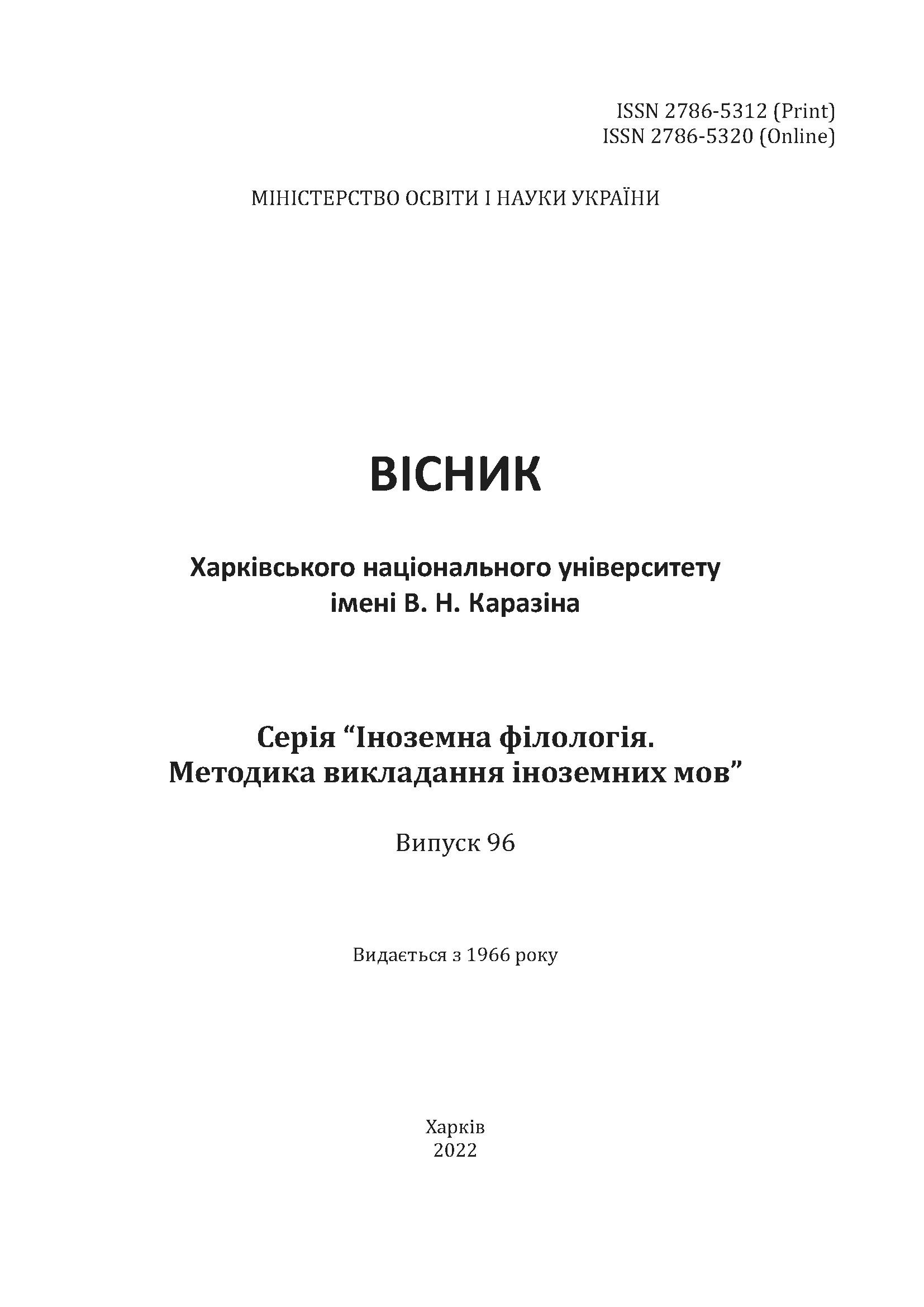Peculiarities of proper names adaptation through using strategies of transcreation, domestication and foreignization during film translation of Chinese TV shows
Abstract
The article is dedicated to the peculiarities of adapting proper names through using such translation strategies as transcreation, domestication, and foreignization during film translation of Chinese TV shows. It has been defined that the field of translation studies, which focuses on the study of the translation segment of Chinese film products, is relatively young, and therefore requires more detailed research, due to the growing popularity of Chinese television series among Ukrainian viewers. The concept of “series” as a separate genre of cinematography has been specified. Common features of movies and TV series audiovisual translation are demonstrated. A detailed explanation of the concept of “Chinese drama” is provided and the main features of this Asian television show type are enumerated. By conducting the survey, it is shown that the Ukrainian audience prefers American and European TV shows to Chinese ones. The main statement of the skopos-theory is investigated and its use in film translation of series is analyzed. It is established that transferring the system of cultural values of the source language to the target language affects the perception of the film translation by the recipient. Methods of transcreation, domestication, and foreignization, are detailed. The practical use of translation strategies during the adaptation of proper names, that belong to such categories as characters names, names of weapons and architectural structures, is investigated. It has been proven that all three translation strategies can be applied to adapt proper names in film translation. It has been also proven that these translation strategies can be leveraged simultaneously to translate a proper name in film translation. It is supposed to encourage students’ practical use of the film translation standards to translate Chinese film products. Prospective research areas of film translation of Chinese television shows are enumerated.
Downloads
References
Czarenko, O. O. (2020). Strategiyi forenizaciyi ta domestykaciyi pry perekladi mizhnarodnoyi reklamy ta produktiv kino- ta teleindustriyi. Visnyk universytetu imeni Alfreda Nobelya. Seriya: «Filologichni nauky». 2, 328-334.
Grydasova, O. I. (2014). Kinodyskurs yak ob’yekt navchannya kino perekladu. Visnyk Zhytomyrskogo derzhavnogo universytetu imeni Ivana Franka. 2, 102–107.
Hall, E. (1990). Understanding Cultural Differences: Germans, French and Americans. Yarmouth: Intercultural Press.
Melnyk, A. P. (2015). Kinopereklad yak osoblyvyj typ audiovizualnogo perekladu. Naukovizapysky Nacionalnogo universytetu «Ostrozka akademiya». Seriya: Filologichna. 58, 110-112.
Ranzato, I. (2016). Translating Culture Specific References on Television: The case of dubbing. London: Routledge.
Rebrij, O. V. (2010). Tvorchyj aspekt peredachi movy personazhiv fantastychnogo tvoru v anglo-ukrayinskomu perekladi. Naukovi zapysky. Seriya: filologichni nauky. 89, 108-113.
Wang, F. (2014). An Approach to Domestication and Foreignization from the Angle of Cultural Factors Translation. Theory and Practice in Language Studies. 4, 11, 2423-2427.
赵,春梅. (2002). 论译制片翻译中的四对主要矛盾. 中国翻译. 4, 51-53.
Alsan, M. (2020). What’s Transcreation? Retrieved from https://weglot.com/blog/transcreation/.




